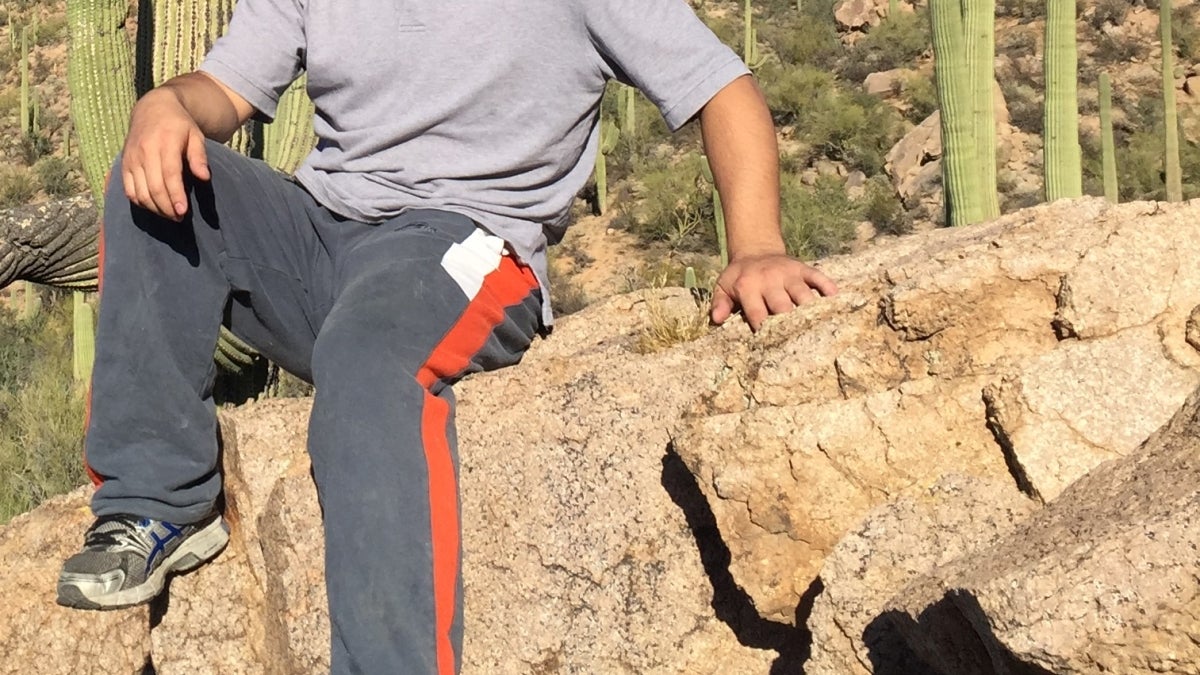Finding a passion topic was key for geological sciences PhD grad

Xinming Chen.
Editor’s note: This is part of a series of profiles for fall 2018 commencement. Read about more graduates.
Originally from a small town in southern China, School of Earth and Space Exploration graduate student Xinming Chen will be receiving his PhD in geological sciences from Arizona State University this December. He credits ASU and his advisor, Professor Ariel Anbar, for teaching him to think critically and independently, skills that will serve him well as he pursues a career in academia.
Prior to graduation, Chen answered a few questions about his time at ASU.
Question: What was your “aha” moment, when you realized you wanted to study the field in which you have earned your degree?
Answer: After I finished my bachelor's degree in environmental engineering, I decided to develop geochemical tools to track and remediate heavy metal contaminations due to mining. When I arrived at ASU and joined Professor Ariel Anbar's lab, I found that scientific questions (e.g., evolution of atmospheric O2 through time) in Earth sciences were more interesting to me and that I’d like to focus my research on trace metal geochemistry in oceans through time.
Q: What’s something you learned while at ASU — in the classroom or otherwise — that surprised you or changed your perspective?
A: I was really surprised about the strong passions professors have for their teaching and research.
Q: Why did you choose ASU?
A: I chose ASU because I was interested in Dr. Anbar's research topics. He has been the professor who has taught me the most at ASU, about how to do research and think independently.
Q: What’s the best piece of advice you’d give to those still in school?
A: The best advice is to try different research topics and figure out which one you like most.
Q: What was your favorite spot on campus, whether for studying, meeting friends or just thinking about life?
A: My favorite spots on campus are in the conference rooms, where I can discuss problems with others.
Q: What are your plans after graduation?
A: After graduation I would like to get a postdoc position and stay in academia.
Q: If someone gave you $40 million to solve one problem on our planet, what would you tackle?
A: I would like to use the money to focus on research about global warming issues, which can cause devastating damages to our planet.
More Science and technology

From food crops to cancer clinics: Lessons in extermination resistance
Just as crop-devouring insects evolve to resist pesticides, cancer cells can increase their lethality by developing resistance to…

ASU professor wins NIH Director’s New Innovator Award for research linking gene function to brain structure
Life experiences alter us in many ways, including how we act and our mental and physical health. What we go through can even…

ASU postdoctoral researcher leads initiative to support graduate student mental health
Olivia Davis had firsthand experience with anxiety and OCD before she entered grad school. Then, during the pandemic and as a…